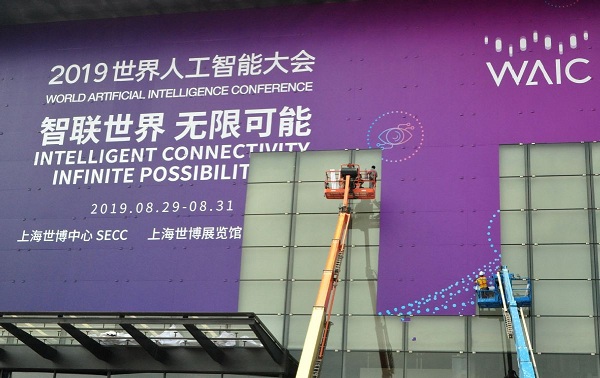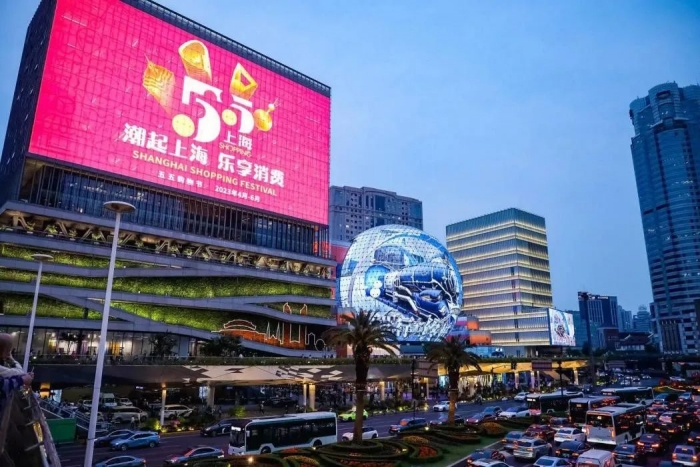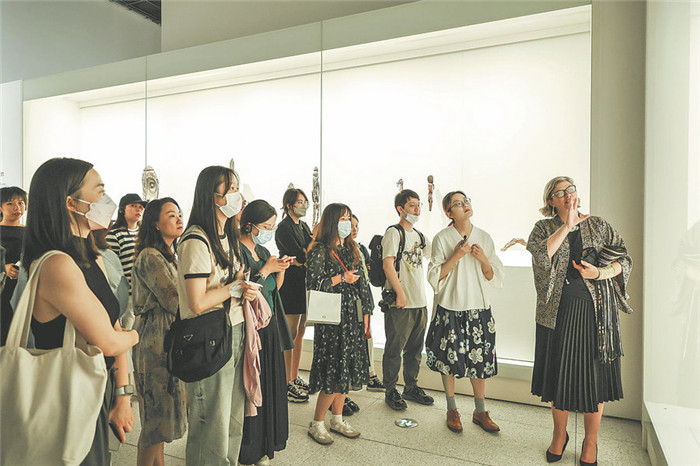Shanghai's AI policies open doors for firms

Preparatory work is underway for the 2019 World Artificial Intelligence Conference, which will be held in Shanghai from Thursday to Saturday. [Photo by Yan Daming/For China Daily]
Guidance underpins city's advantages - a comprehensive industrial chain, growing startup culture, strong human capital
Shanghai has set itself on a long-term trajectory to become the nation's, and even the world's leader in artificial intelligence. Its comprehensive industrial chain, growing startup culture, and strong human capital are all working to catapult the city to the AI forefront. But to attain a decisive AI lead in an industry that requires constant input of time and money, consistent policy guidance and support are critical.
To decipher Shanghai's AI dream, China Daily has compiled a list of mechanisms, including national and city-level policies, industrial clusters and an army of AI-themed activities and pilot projects - all of which are under the auspices of the government - that will enable Shanghai to lead the AI pack.
City-level goals
Shanghai's AI ambition was first outlined in a municipal plan issued in November 2017, when the city authorities pledged to expand the scale of the industry to more than 100 billion yuan ($14.2 billion) by 2020. Along with this goal in industrial output, the city is looking to set up a dedicated industrial fund, introduce 60 emerging AI technologies from local companies, and host six demonstration zones and 60 AI applications in the same period of time.
National pilot project
Shanghai's AI ambition was taken up a notch thanks to the decision by the central government to build the nation's first pilot zone for the innovation and application of AI.Dubbed "Shanghai National Pilot Area for the Innovative Development of New-Generation AI", the dedicated area, approved by the Ministry of Industry and Information Technology in May, has three main goals: to establish an AI core industrial cluster; to promote AI applications; and to build a supporting system for AI innovation.
Application scenarios
The lifeline to AI's materialization is the number and variety of real-life scenarios to put the technology into daily practice. The city has rolled out a plan to both solicit applicable AI solutions and promote a suite of indigenous AI technologies to speed up the widespread application of AI.Since the end of last year, two scenarios have been published by the metropolis thus far, calling for tangible AI solutions for education, healthcare, transportation, manufacturing and city management, among others. Meanwhile, initiatives such as AI-powered diagnosis, cargo transportation and civic services are being promoted through roadshows and AI-themed forums.
 Contact Us
Contact Us

 New pedestrian street boosts Pudong's night economy
New pedestrian street boosts Pudong's night economy  Festival injects vitality into Shanghai's consumer market
Festival injects vitality into Shanghai's consumer market A journey through history
A journey through history Chinese roses bloom in Pudong
Chinese roses bloom in Pudong


